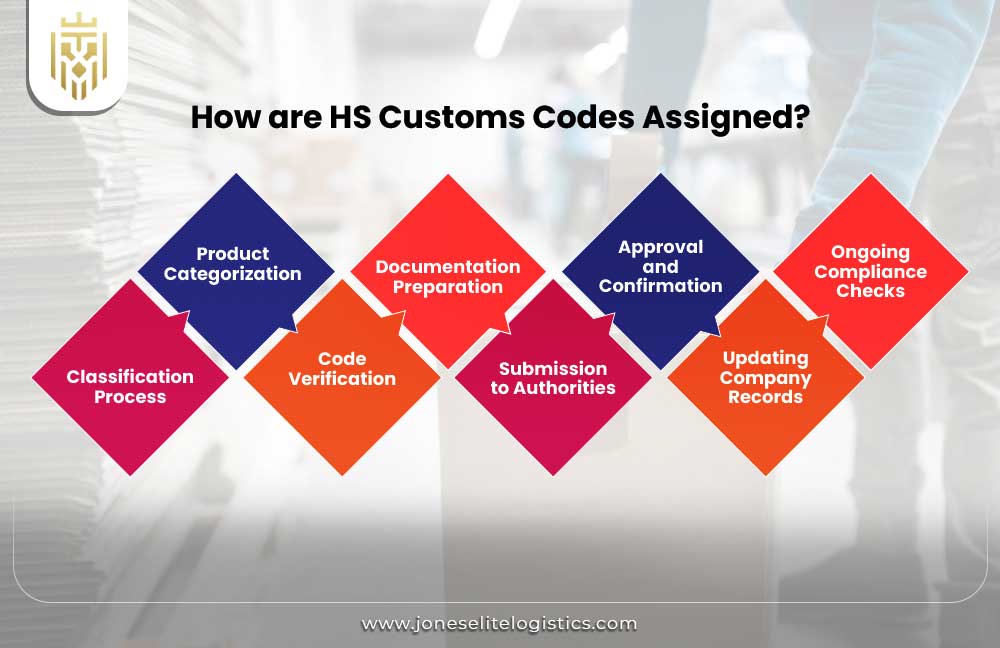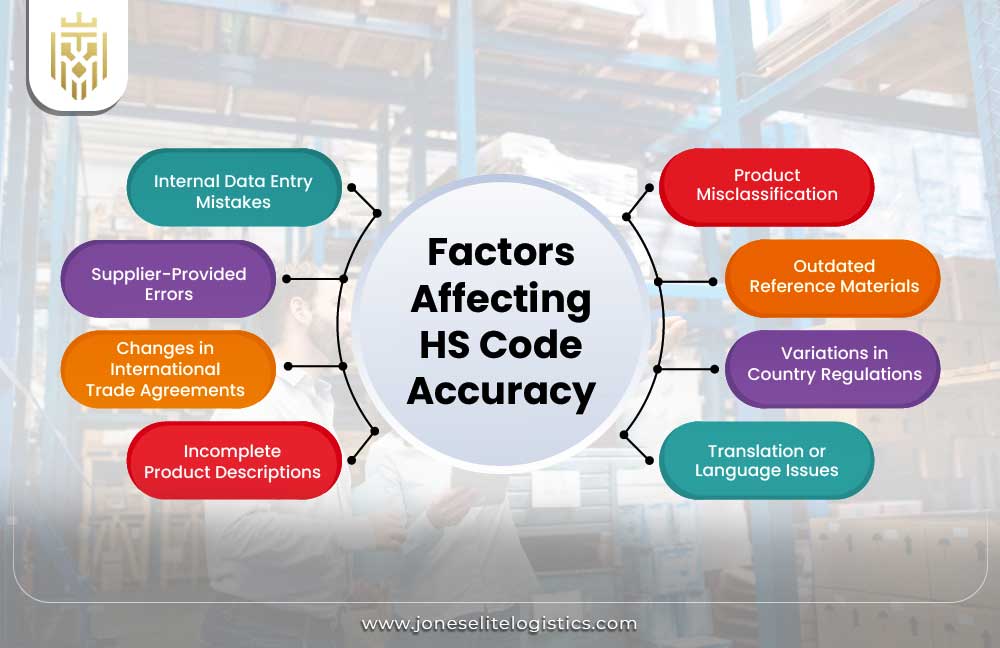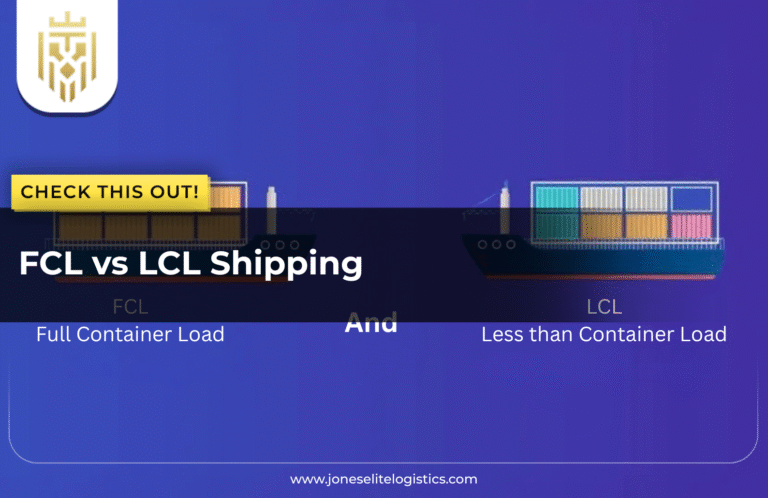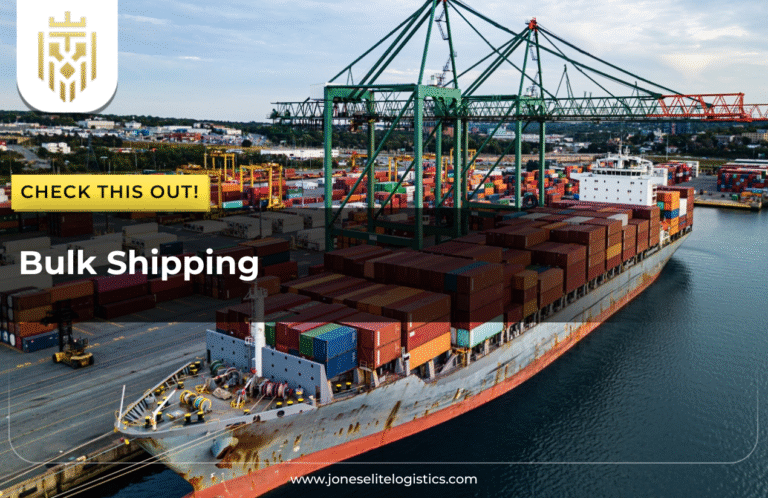What are HS Customs Codes?
Customs Harmonised System (HS) codes are globally identifiable numerical codes identifying traded goods. In India, they determine the applicable duties, import restrictions, and compliance requirements. Applying the right code will guarantee flawless cross-border movement and avoid heavy fees and penalties during customs clearance.
Why are HS Customs Codes essential in logistics?
In logistics, proper customs HS code tariff classification ensures proper duty, prevents shipment delays, and ensures that all Indian trade laws are followed. For companies, accuracy in HS coding can engender confidence in the authorities, minimise dangers of misclassification, and accelerate clearance in major ports.
How often do HS Codes change?
The World Customs Organization (WCO) updates the codes every five years. Companies in India need to monitor these corrections to match the customs HS code list, ensure compliance with the changing trade laws, and/or avoid unexpected mismatches in customs duties.
How are HS Customs Codes Assigned?

In India, HS codes must be assigned in accordance with the established rules. Businesses need to find product information, consult sources such as the customs HS code book, and verify the classification by professionals. This procedure makes sure that duties are applied correctly, the logistics are smooth, and compliance risks at customs are minimised.
Classification Process
The classification procedure begins with product nature, constituents, and usage analysis. Customs HS code lookup is often used by companies to identify the correct category. These can be inaccurate, causing difficulties in customs clearance, both in terms of import duties and supply chain effectiveness.
Product Categorization
Product categorisation entails the comparison of specifications with descriptions that are accessible through a custom HS code search. Indian companies need to be categorised correctly since improper classification results in disagreements with customs, delays at the ports, and fines in case of underpayment or overpayment of duties.
Code Verification
Verification is important to make sure the assigned HS codes are compatible with international standards. India customs checks against official databases. Indian customs duty references based on HS codes offer a precise picture of the tariffs applicable so that businesses stay compliant and avoid incurring any unwarranted expenses during their global trading endeavours.
Documentation Preparation
Records are in the form of invoices, packing lists, and forms with references to HS codes. Precision in this case is critical, as mistakes result in an impact on the customs duty assessment. To make sure that the documents are right in terms of classifications, companies in India tend to cross-check with the customs HS code tariff.
Submission to Authorities
The submission of documentation with HS codes to the Indian customs authorities is done to allow verifications. This clear and consistent information mitigates the risks of inspection. The Customs HS code list is sometimes consulted by businesses during preparation to be able to ensure that they do not experience delays, rejections, or conflicts with the customs officials handling clearance.
Approval and Confirmation
Submitted HS codes are reviewed and confirmed by authorities. Shipments continue uninterrupted after being approved. In India, approval implies proper assessment of duties. A number of businesses also use customs HS code search programmes to verify classifications prior to final clearance.
Updating Company Records
After approval, companies incorporate changes into internal systems to use in the future. This eliminates redundancy in classification mistakes and eases the process of documentation. In India, companies can also have an internal HS codebook of customs that can be used on-demand by different supply chain teams.
Ongoing Compliance Checks
Compliance checks help to maintain the validity of HS codes as global trade regulations change. Indian companies check HS code lookup services frequently to ensure they are correct so as not to incur fines and be in compliance with both national and international regulations in terms of customs laws and requirements.
Factors Affecting HS Code Accuracy

The precision of HS coding is subject to several factors: product information, varying laws, and practical references. In India, businesses rely on services such as the customs HS code search engine to remain compliant, mitigate on-duty miscalculation, and improve logistics in international trading.
Product Misclassification
Misclassification happens when items are not coded properly because of poor knowledge or wrong sources. This error can cause Indian importers to incur higher expenses. The official customs HS code list will minimise risks businesses must deal with by enabling them to allocate the right codes during customs clearance.
Outdated Reference Materials
Using outdated manuals can confuse companies. The codes used by HS change regularly, and older materials lead to compliance problems. Indian logistics professionals should be able to utilise the revised customs HS code tariff to make sure that duties, regulations, and trade requirements are always applied properly.
Variations in Country Regulations
Countries may misinterpret HS codes. In the case of Indian businesses, a product that is categorised in a certain way in the country may be different in another country. The verification by HS code and Indian customs duty will make certain that the use of this code is accurate in our country and that the risks of exporting it to the international market will be minimised.
Translation or Language Issues
Language differences are a frequent source of HS code errors. Indian exporters need to be selective while translating products, with descriptions corresponding to the customs HS code book. Proper documentation also avoids misinterpretation by the foreign customs authorities, protecting their compliance and trade disputes.
Incomplete Product Descriptions
Without accurate product specifications, inaccurate HS codes could be provided. Indian importers have to be detailed in their specifications and consult the customs HS code search engines to make sure that the classification is compatible with the actual nature of the product being imported, without exposing themselves to costly customs clearance difficulties.
Changes in International Trade Agreements
Tariffs and classifications often change with international trade agreements. Indian companies have to monitor these changes with the help of custom HS code searches to keep pace. Failure to align can lead to duty mismatches, compliance risks and a less competitive position in foreign markets.
Supplier-Provided Errors
Suppliers can issue incorrect codes because of neglect or misinterpretation. Indian businesses are required to confirm by themselves the information by use of the customs HS code. His tariff reference prior to submission It minimises the risk of misclassification, eliminating any legal conflicts with customs and preventing unnecessary financial penalties.
Internal Data Entry Mistakes
Customs processes can be affected by internal errors during documentation entry. Indian businesses should also validate the entries on trustworthy customs HS code search databases to maintain consistency. Twofold verification reduces risks, duties are properly applied, and a delivery passes without problems.
FAQs
1) What are HS Customs Codes?
Customs codes are internationally uniform classifications of traded goods, which are used to ascertain duties, taxes, and regulations. They guarantee easy customs clearance, the correct tariffs and adherence to international trade regulations.
2) What are the HS codes for India?
India uses codes based on the Harmonised System maintained by Indian Customs. The Indian customs duty structure upon the HS code determines the applicability of tariffs, so proper classification is crucial in every industry with respect to import and export activities.
3) Why are HS Customs Codes important in logistics?
Codes are crucial in logistics considerations of HS codes, which define duties, taxes, and restrictions. Precise codes minimise clearance delays, guarantee compliance with law, and facilitate international trade by Indian businesses.
4) How often are HS Codes updated?
The World Customs Organisation revises the HS codes every five years. The Indian businesses need to keep abreast of the changes in the customs HS code list in order to remain compliant and prevent duty mismatch.
5) Who assigns the HS Code for a shipment?
The importer or exporter assigns HS codes by examining details of products. The codes are cross-referenced with the official customs HS codes book to ensure accuracy prior to submission to the customs authorities to be processed.
6) What happens if the wrong HS Code is used?
The wrong use of HS codes may lead to delays, fines, increased duties, or the refusal to accept the delivery. Indian companies use custom HS code searching tools to reduce errors and ensure ease in compliance with customs.
7) Are HS Codes the same for every country?
HS codes begin with an international structure but then diverge after 6 characters. Every nation, including India, has distinct tariffs and regulations, and businesses should confirm the classifications by carrying out the customs HS code search.
8) How can I verify the HS Code for my goods?
To check the correct HS codes assigned to goods, one can use Indian Customs portals/customs HS code search sites or seek the advice of licensed customs brokers to determine duty rates and apply them before shipping.









